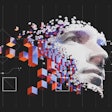Dear Artificial Intelligence Insider,
Despite years of research detailing strong performance across a broad range of imaging applications, widespread adoption of artificial intelligence (AI) in radiology still remains elusive. This could be due to ongoing issues such as generalizability, proof of efficacy in clinical practice, and a murky return on investment.
But AI can still be a winner, according to Michael J. Cannavo, aka the PACSman. He explains how in this edition's Insider Exclusive.
In other news this issue, an AI application showed promise as a tool for quantifying atherosclerosis on coronary CT angiography exams. In radiotherapy planning applications, a deep-learning algorithm can automatically segment contours of organs at risk and clinical target volumes. But will radiation oncologists trust radiation therapy plans produced by machine-learning algorithms?
AI analysis of SPECT myocardial perfusion imaging can provide valuable predictions of future major adverse cardiac events. What's more, it can classify the severity of Parkinson's disease on 3D SPECT images.
An algorithm training approach called weak supervision yielded a breast MRI lesion classification algorithm that achieved higher specificity, while AI algorithms trained using radiomics and clinical imaging findings can also accurately detect cancer on breast MRI. Also, a machine-learning model can predict the risk of radiology appointment no-shows.
Deep-learning algorithms can also stratify risk in COVID-19 patients based on lung ultrasound exams and predict the need for hospitalization and supplemental oxygen via chest x-ray results. In addition, a follow-up program based on AI can effectively track incidental lung nodules and enable early intervention.
Interoperability across health systems could help unleash the power of AI in medical imaging and healthcare overall, according to a keynote presentation at the recent Society for Imaging Informatics in Medicine (SIIM) annual meeting. Another talk at SIIM 2021 focused on the potential for AI to deliver personalized imaging at the bedside
AI can also identify forgotten inferior vena cava filters on radiography exams and provide automated and accurate segmentation of the pancreas on CT exams. In addition, the technology could enhance the utility of clinical decision-support software and evaluate chronic kidney disease on ultrasound.
A deep-learning algorithm predicted a patient's risk of mortality from cardiovascular disease using low-dose CT lung cancer screening exams, as well as estimated the risk of malignancy of pulmonary nodules found on chest CT exams. Meanwhile, machine-learning models trained using autopsy tissue samples are revealing new information about brain tumor pathology from MRI exams.
AI can also add value in all parts of the MR imaging chain and help to detect congenital heart disease on fetal ultrasound.
Is there a story you'd like to see covered in the Artificial Intelligence Community? Please feel free to drop me a line.




















